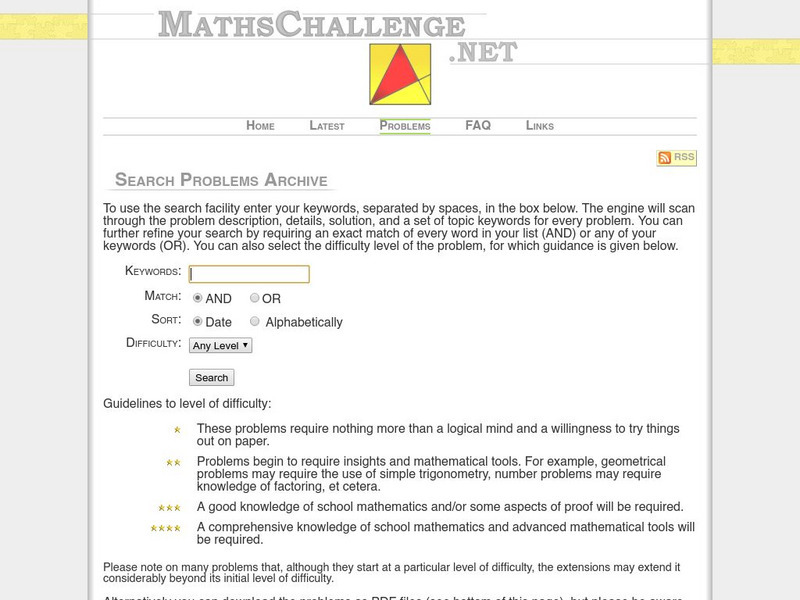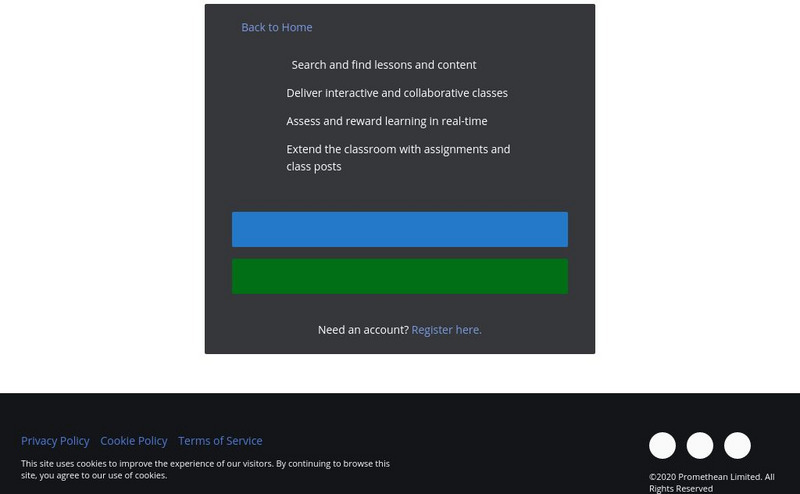Hi, what do you want to do?
Maths Challenge
Maths challenge.net: False Ceilings
A "one star" geometry problem that requires finding the visual pattern and applying and pattern extensions to solve the false ceiling problem.
Maths Challenge
Maths challenge.net: Kitchen Floor
A "one star" geometry problem that requires finding the visual pattern and applying logic with basic math skills to solve how many tiles are needed to complete the kitchen floor pattern.
Better Lesson
Better Lesson: 3rd Day of School
Sixth graders extend and identify the patterns of decreasing time and be able to understand relationships among units and convert from one unit to another unit within the same system.
National Council of Teachers of Mathematics
Nctm: Figure This: Fractals
Can you figure out what pattern comes next? Explore patterns and perimeter in this math challenge on fractals. A one page activity from the NCTM Math Challenges for Families collection.
ClassFlow
Class Flow: Starters
[Free Registration/Login Required] In this flipchart, students understand and apply concepts and procedures from algebraic sense. Students recognize, extend, or create a pattern or sequence between sets of numbers and/or linear patterns.
ClassFlow
Class Flow: Multilink Sequences Algebra
[Free Registration/Login Required] In this flipchart, students are presented with various shapes made up of a sequence of individual blocks. Students apply reason to predict the number of shapes needed to extend the series.










